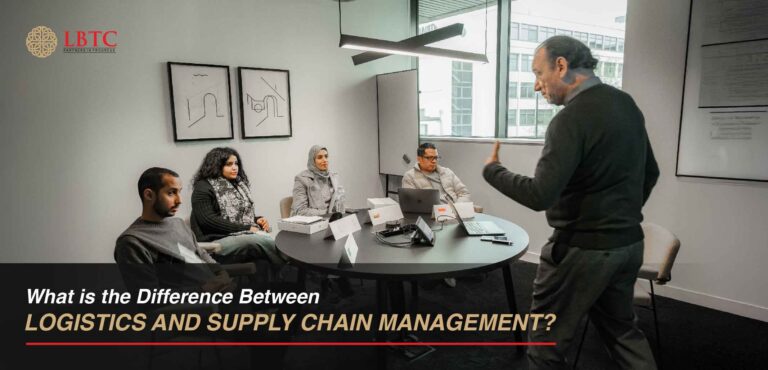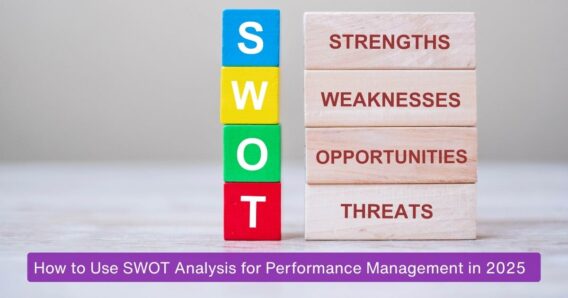Logistics vs Supply Chain Management -How They Differ from Each Other?
5 min read
Being able to move goods, position resources, and manage processes is vital for almost any business today in our interconnected world, where they need to meet demand and deliver value. Logistics and supply chain management are two domains that play a critical role in addressing these goals. Even though people often interchangeably use these two fields, they have different roles and applications in the broader picture of business function. If you are planning to pursue a logistics course or make a career in this fast-growing industry, knowing how different logistics from supply chain management is very important.
Significant Distinctions Between Logistics and Supply Chain Management
In the broader context of SCM, logistics is that element which deals with the transportation, storing and overall functioning of goods, services and information from point A to point B — its path or cycle from origin to the consumer. Logistics is all about getting goods to customers, as efficiently, cheaply and quickly as possible.
In contrast, supply chain management (SCM) involves a wide range of activities that cover planning, sourcing, production, and coordination of all aspects of the supply chain. SCM, however, has much more complexity; it does entail logistics for sure, but it is not limited to that. SCM is way too vast and connected, and it incorporates each and every process tentatively under all the stakeholders’ tents, from suppliers to manufacturers to customers. Supply chain management aims to improve the flow of goods, services, and information in such a way as to maximize value added for both the business and those who see its output.
Understanding Differences In Detail
Logistics and supply chain management indeed have many processes in common, but their focus, scope, and objectives are quite different. Major differences are as follows:
Scope of Operations
It deals with micro items that effectively move and store products. SCM, on the other hand, deals with a broader scope, which involves monitoring the entire supply chain network that includes suppliers, production facilities, distribution centres and ultimately, customers. SCM, on the other hand, takes a broader perspective as it monitors every detail from procurement of raw materials to delivery of finished goods.
Primary Objectives
Customer satisfaction is the Chief goal of logistics. The primary goal of logistics operations is to deliver goods correctly, on time and at the cheapest cost. Supply chain management extends this view to apply across the entire supply chain to gain a competitive advantage through the creation of value. Supply chain management (SCM) is designed to balance demand and supply whilst optimizing the consumption of resources, increasing overall business efficiency.
Integration and Coordination
Logistics generally operates as an independent function in the realm of a single organization — like a company distribution department. However, supply chain management is multifaceted—it requires the integration of several functional areas and coordination activities among separate entities such as suppliers, manufacturers, distributors, and retailers. SCM does not have everything under it; its broader role will involve collaboration across different organizations and departments, such as procurement, production, logistics, and sales.
Concentrate on Processes and Relationships
Logistics is the process-oriented aspect of supply chain management that focuses on managing physical goods. It highlights the importance of operational effectiveness, inventory management, and accuracy in thoroughly delivering these specified orders. On the other hand, supply chain management is more about managing relationships between suppliers, distributors and customers. Supply Chain Management (SCM) involves strategic planning, forecasting & long-term strategy development to provide seamless collaboration across your supply chain network.
Cost vs. Value Creation
Logistics is primarily concerned with decreasing transportation, storage, and labour costs. It is made for decreasing the costs without surrendering the quality of the services. On the other hand, SCM has a somewhat wider scope of value creation and provides an increase in overall supply chain performance. SCM enhances strategic value by streamlining processes and enabling superior supplier and customer relationships—a factor that is often also reflected as a business competitive advantage.
Conclusion
Logistics and supply chain management are both incredibly important to the success of any business, each serving their own purpose within your operations. Where logistics move goods in a more efficient manner, supply chain management optimizes the entire network, identifying these differences will allow businesses and professionals to formulate more specific solutions for enhancement.
If you want to know more about logistics, then sign up for a logistics course draft. Thorough knowledge of logistics and supply chain management can help shape your career to be more lucrative, taking this evolving industry by storm.
Are you ready to begin your career in logistics and supply chain management? Discover our courses today!




